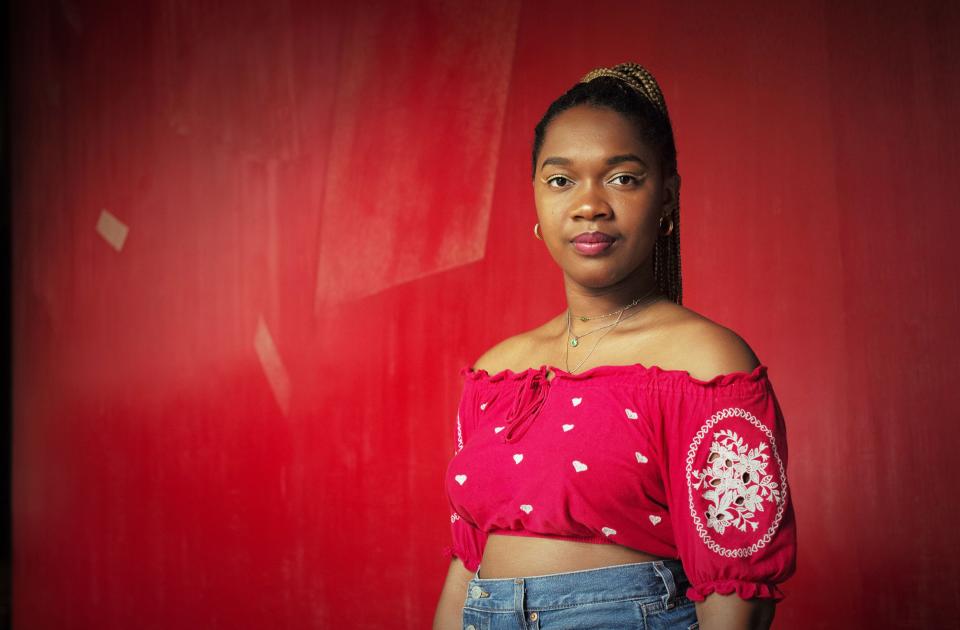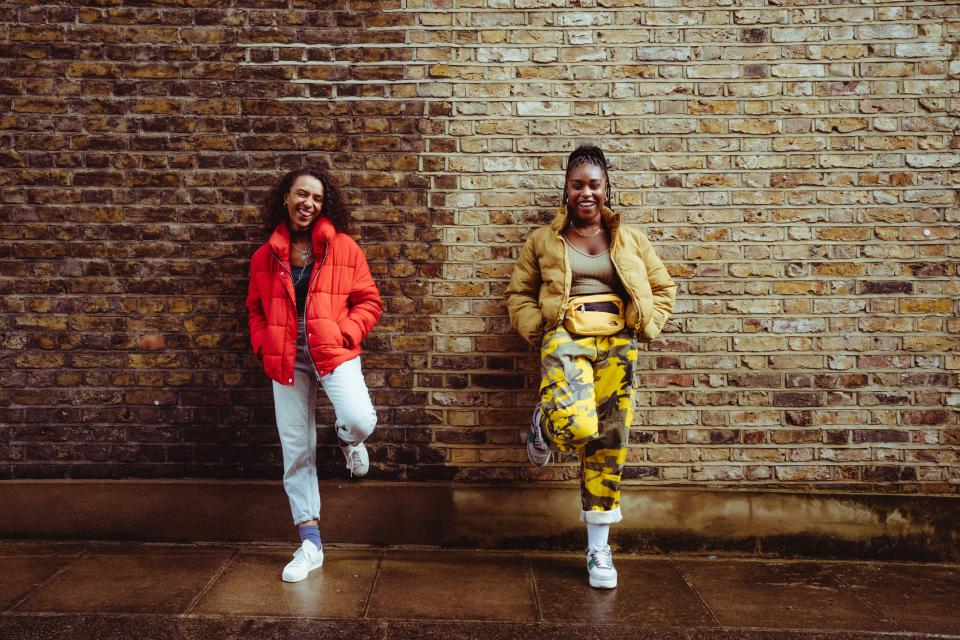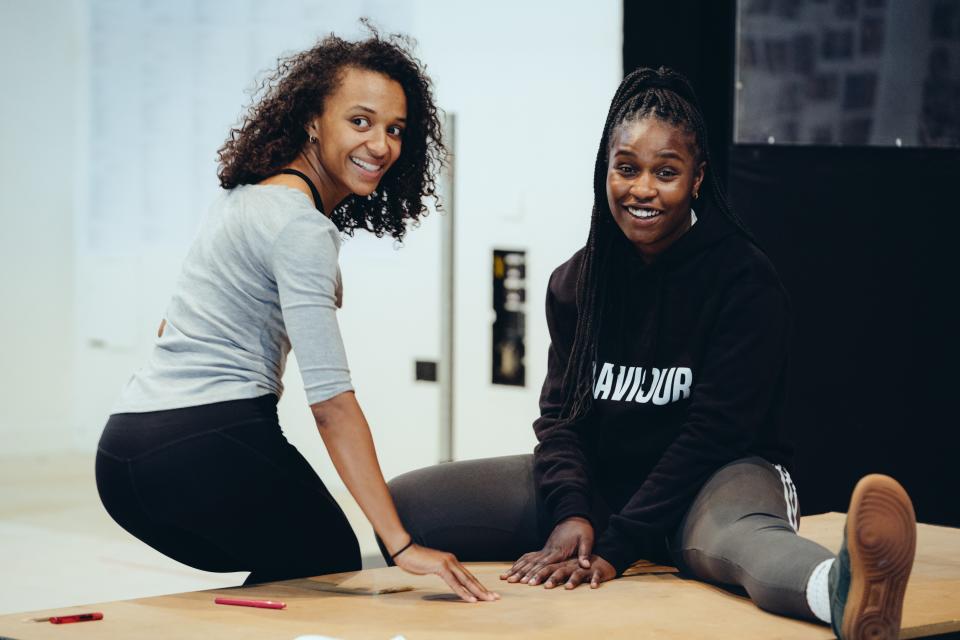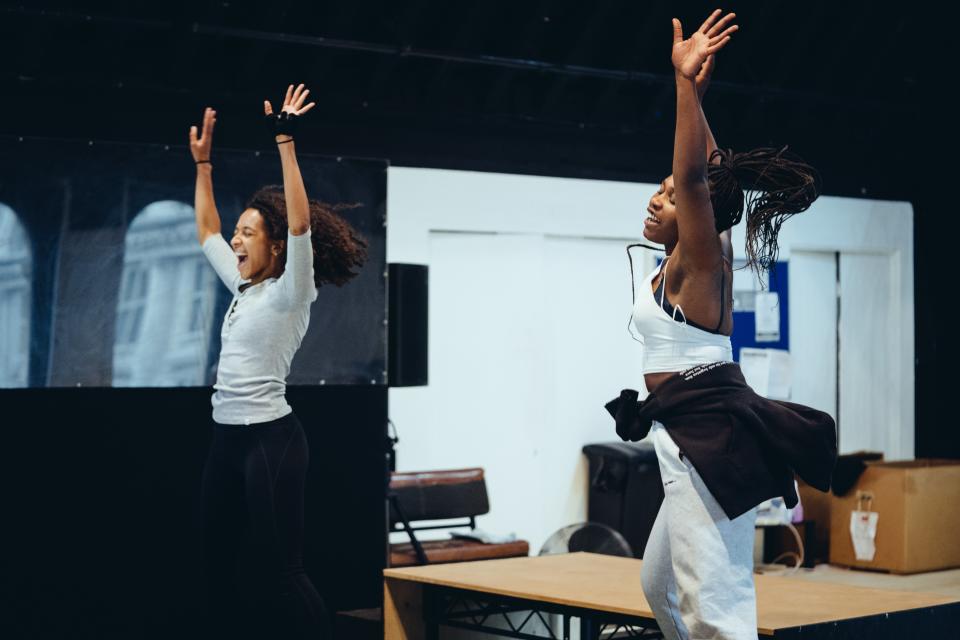Jasmine Lee-Jones interview: I want people to come to the theatre like they watch Netflix

Back in 2019, you either saw seven methods of killing kylie jenner or you were trying to get a ticket for it. Jasmine Lee-Jones’s debut play, exploring female friendship, cultural appropriation and the internet, became one of the most talked-about plays of the year after a triumphant run at the Royal Court, picking up a trail of awards and an ecstatic stream of social media appreciation. Those who weren’t able to see it begged for the theatre to put it back on again – and this month, they are. Two years on, the Royal Court will reopen to audiences with seven methods, its first live production with audiences since March 2020.
But the play, which fizzes with ideas and requires its cast to embody gifs and memes, was only originally supposed to be ten minutes long. Lee-Jones, 22, started writing it as part of the Royal Court’s writers group back in 2017. “I just didn’t really like it, I just found the play that I wrote annoying,” she tells me, as we sit over the road from the theatre. So much, in fact, that when Royal Court artistic director Vicky Featherstone asked to read it, Lee-Jones initially said no. When it was programmed, Lee-Jones started working with the play’s now director, Milli Bhatia, and realised a ten-minute play would never be able to contain everything she was trying to explore. She ended up writing it in her final year of drama school, then just 20, in just nine months. “It was really tough. There was a lot of crying and stuff like that, because third year is very intense and I was writing this at the same time.”
It’s immediately obvious when talking to Lee-Jones IRL, as her play would have it, that she is deep and impressive thinker, often pausing for several seconds before she answers a question. But when she accepted the prize for Most Promising Playwright at the 2019 Evening Standard Theatre Awards, she said in her speech that the play was never meant to happen. What she meant was that it felt like an extremely “high stakes” situation for her, even though the Court is used to working nimbly with young writers. “Who trusts two young theatremakers – me and Milli – what other theatre would entrust that? And this is my first play and I’m learning now as we’re doing it. I’m literally learning as I wrote it.”

Born in North London, Lee-Jones became interested in theatre because of a strong connection she felt with words and language. “I always wanted to read things out loud,” she says. “When I found theatre, I started to realise: oh, you can do a job where you’re actually paid to speak words aloud, to really interrogate language.” The first play she read was A Raisin in the Sun by Lorraine Hansberry, which had a profound influence – “I’d never seen a family like mine dramatized on stage” – and she got into southern gothic novels, reading work from Harper Lee to Truman Capote. “I was a bit weird,” she says. She later discovered August Wilson, and black British playwrights debbie tucker green and Roy Williams.
In her writing group at the Royal Court, a programme that counts Lucy Prebble, Nick Payne and Alice Birch among its alumni, Lee-Jones worked under the tutelage of playwright Rachel Delahay. “We just talked about everything, and I was like, is this relevant to writing? And then I was like, oh, she’s saying we can write about pop culture. And at that time, Kylie Jenner’s lip kits had come out, and Fenty Beauty had come out, and I just remember saying, ‘I’m pretty sure Kylie would make more money than Rihanna’. And actually, there was a bit of disagreement.” But a year later, Lee-Jones’s prediction proved correct: Kylie Jenner was named as the world’s youngest ‘self-made’ billionaire. In seven methods, Cleo, the young black woman at the play’s heart, takes to Twitter to the dismay of her best friend Kara, and starts a thread: “Kylie has only reached billionaire status by stealing BW sauce and reselling it to wypipo like the shit’s new – meanwhile the pay gap for BW in the states + UK continues to widen…”
The play’s text is written in gifs, online acronyms, merging the IRL-world with the social media-sphere. It’s the most original and successful way any writer has ever managed to capture the internet on stage, but Lee-Jones didn’t do it on purpose – she just wanted it to feel real. “I think theatre can sometimes feel quite isolating like, oh, this is for someone else. We have a prestige about theatre and what should be on stage, like it’s just for Shakespeare. And then you put something in from the internet that feels very casual and personal to people, and people are willing to give you more license, “ she says.
Her play may feel like being thrown headlong into the world’s busiest Twitter timeline, but Lee-Jones deleted all of her social media accounts at the end of last year. The platforms allow people to present “a performance of identity”, says Lee-Jones, and she was “starting to get mixed up. I was like, whoa, is the thing I’m presenting me?” She also had the sense that going on Twitter was becoming “like a tic”. “I can’t, every time I feel something difficult, or tragic, or a little bit hard, every time I butt up against something in my soul, just go on Twitter – which is what I was doing.” For her, it’s worth it not to be on there – she feels more honest and less cruel to herself – and she’s spent enough time exploring it to understand its tone. “It’s humour that undercuts, humour that is taking the piss.”

The online reaction to seven methods made it clear that the play was reaching new, more diverse audiences, something that matters greatly to Lee-Jones. “I want people to come to the theatre like they watch Netflix,” she says. “I like watching reality TV and all of that as much as the next person. But one thing I find super interesting about TV is everyone will watch good, really thoroughly written, well-plotted TV. Everyone was watching I May Destroy You. Now everyone’s watching Mare of Easttown, everyone watched Breaking Bad. But when there’s something really good in theatre on, people still feel like it’s not for them. There’s a universality to TV and film that theatre just hasn’t created yet. It’s still like, oh, it’s meant for those people.”
To other theatres in search of new voices, Lee-Jones thinks says there’s a key dynamic at the Court that many could learn from: “the teacher is always learning from the student, and that’s how I feel in this building”. Of course, that doesn’t mean there aren’t sometimes disagreements – but the relationship feels reciprocal rather than one-sided. In future, she wants to work in all mediums from theatre to TV – Alice Birch, playwright and Normal People screenwriter is a big role model of hers – and wants to see more contemporary black stories being told. In September, her second play, Curious, will be on at Soho Theatre – with Lee-Jones performing in it.

Having been nurtured as a writer by the Royal Court from the age of 17, Lee-Jones has always felt more comfortable there than at other theatres. But she had an experience a few years ago that shook that. She was watching a play with a friend, also a black woman, and they were waiting at the bar to get a drink. “This group of white people, I think maybe husband and wife, just went in front of us. I looked at my friend and was like, did you see that? And she just nodded, but eventually I realised they just didn’t see us. They didn’t think we were there to do something important or watch a show. They thought we were kind of just loitering,” she tells me. “I think that was the first experience I had in this theatre where I realised – not because of the theatre, necessarily – but there’s an audience that thinks this space belongs to them more than other people.”
In the post-pandemic era, Lee-Jones thinks the theatre world will only bring in new audiences if it’s really committed to doing so. “They have to keep programming the plays until people feel safe enough to come to the work. And what happened to me in the bar downstairs doesn’t keep happening, because people realise: oh, this space is for everyone, it’s not just for us.” As she’s telling me this, just behind her is the Royal Court’s building; on the front of it, her name is written in neon lights. How thrilling that, right now, that one belongs to her.
seven methods of killing kylie jenner is at the Royal Court until July 27; £12 tickets available every Monday throughout the run, online from 9am; royalcourttheatre.com/whats-on/sevenmethods
Read More
Out West review: Enjoyable monologues explore West London lives
Carrie Hope Fletcher interview: I’m pleased we said no to Boris pilot
J’Ouvert review: Notting Hill Carnival put exuberantly centre stage

 Yahoo Sport
Yahoo Sport 





































